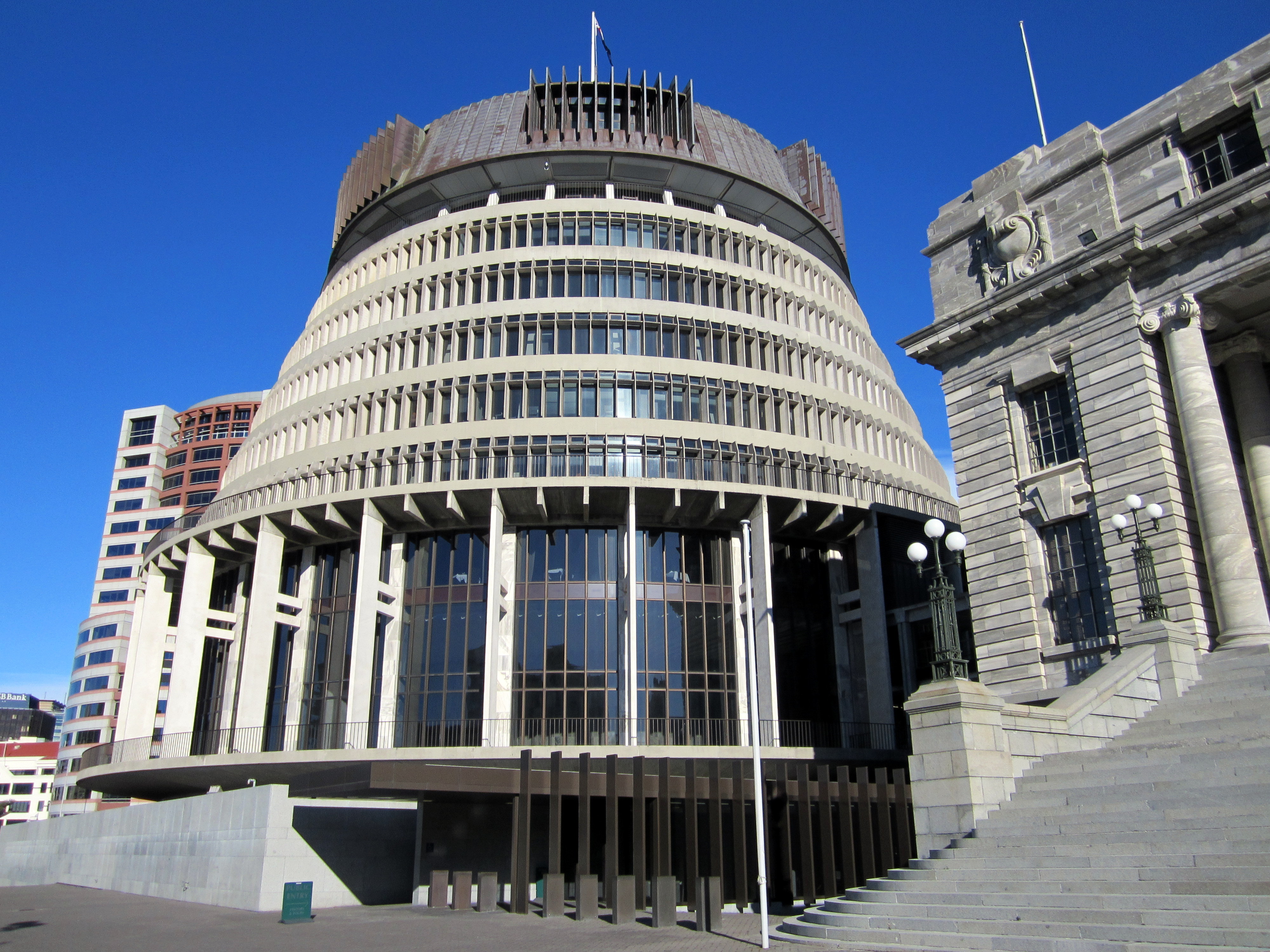|
Overseas Investment Commission
The Overseas Investment Commission was a New Zealand government agency responsible for regulating foreign direct investment into New Zealand. The Commission was administratively part of the Reserve Bank of New Zealand (New Zealand's central bank). This link recognises a historical foreign exchange control role of the Commission. The Commission was responsible for high value investments (2005: NZD $50m+), investments in sensitive land and investments in fishing quota. The Commission was replaced by the Overseas Investment Office The Overseas Investment Office is the New Zealand government agency responsible for regulating foreign direct investment into New Zealand. The Office is responsible for high value investments (2006: NZD $100m+), investments in sensitive land and ... from 25 August 2005. The Office is part of Land Information New Zealand, the New Zealand Government Agency responsible for survey, land valuation, land titles and mapping. This link recognises that the majori ... [...More Info...] [...Related Items...] OR: [Wikipedia] [Google] [Baidu] |
New Zealand
New Zealand ( mi, Aotearoa ) is an island country in the southwestern Pacific Ocean. It consists of two main landmasses—the North Island () and the South Island ()—and over 700 smaller islands. It is the sixth-largest island country by area, covering . New Zealand is about east of Australia across the Tasman Sea and south of the islands of New Caledonia, Fiji, and Tonga. The country's varied topography and sharp mountain peaks, including the Southern Alps, owe much to tectonic uplift and volcanic eruptions. New Zealand's capital city is Wellington, and its most populous city is Auckland. The islands of New Zealand were the last large habitable land to be settled by humans. Between about 1280 and 1350, Polynesians began to settle in the islands and then developed a distinctive Māori culture. In 1642, the Dutch explorer Abel Tasman became the first European to sight and record New Zealand. In 1840, representatives of the United Kingdom and Māori chiefs ... [...More Info...] [...Related Items...] OR: [Wikipedia] [Google] [Baidu] |
Foreign Direct Investment
A foreign direct investment (FDI) is an investment in the form of a controlling ownership in a business in one country by an entity based in another country. It is thus distinguished from a foreign portfolio investment by a notion of direct control. The origin of the investment does not impact the definition, as an FDI: the investment may be made either "inorganically" by buying a company in the target country or "organically" by expanding the operations of an existing business in that country. Definitions Broadly, foreign direct investment includes "mergers and acquisitions, building new facilities, reinvesting profits earned from overseas operations, and intra company loans". In a narrow sense, foreign direct investment refers just to building new facility, and a lasting management interest (10 percent or more of voting stock) in an enterprise operating in an economy other than that of the investor. FDI is the sum of equity capital, long-term capital, and short-term capital ... [...More Info...] [...Related Items...] OR: [Wikipedia] [Google] [Baidu] |
Reserve Bank Of New Zealand
The Reserve Bank of New Zealand (RBNZ, mi, Te Pūtea Matua) is the central bank of New Zealand. It was established in 1934 and is constituted under the Reserve Bank of New Zealand Act 1989. The governor of the Reserve Bank is responsible for New Zealand's currency and operating monetary policy. The Bank's current Governor is Adrian Orr. Employees of the bank operate under the framework of a managerial hierarchy. The Reserve Bank of New Zealand does not offer financial services to the public nor does it offer deposit insurance, and its website refers people to other financial institutions. Ownership The Reserve Bank has been wholly owned by the New Zealand Government since 1936. The Reserve Bank is established by an Act of Parliament (the Reserve Bank of New Zealand Act 1989) and it has statutory independence. The Reserve Bank is accountable to Parliament and provides an annual dividend to the Government. Monetary policy Primary Functions The Reserve Bank's primary functio ... [...More Info...] [...Related Items...] OR: [Wikipedia] [Google] [Baidu] |
Overseas Investment Office
The Overseas Investment Office is the New Zealand government agency responsible for regulating foreign direct investment into New Zealand. The Office is responsible for high value investments (2006: NZD $100m+), investments in sensitive land and investments in fishing quota. The Office is part of Land Information New Zealand, the New Zealand Government Agency responsible for survey, land valuation, land titles and mapping. This link recognises that the majority of the Office's work relates to the control of sensitive land. The Office replaces an earlier agency called the Overseas Investment Commission. History The Overseas Investment Commission (OIC), established in 1973, imposed certain limitations on foreign investment. OIC consent was required for foreign investments that would control 25% or more of businesses or property worth more than NZ$10 million. Restrictions and approval requirements also applied to certain investments in land and in the commercial fishing in ... [...More Info...] [...Related Items...] OR: [Wikipedia] [Google] [Baidu] |
Government Of New Zealand
, background_color = #012169 , image = New Zealand Government wordmark.svg , image_size=250px , date_established = , country = New Zealand , leader_title = Prime Minister Jacinda Ardern , appointed = Governor-General , main_organ = , ministries = 32 ministries and departments , responsible = House of Representatives , budget = 119.3 billion (2018–19) , address = The Beehive and other locations across Wellington , url = The New Zealand Government ( mi, Te Kāwanatanga o Aotearoa) is the central government through which political authority is exercised in New Zealand. As in most other parliamentary democracies, the term "Government" refers chiefly to the executive branch, and more specifically to the collective ministry directing the executive. Based on the principle of responsible government, it operates within the framework that "the Queen reigns, but the government rules, so long as it has the support of the House of Representatives".Sir Kenneth Keith, qu ... [...More Info...] [...Related Items...] OR: [Wikipedia] [Google] [Baidu] |


